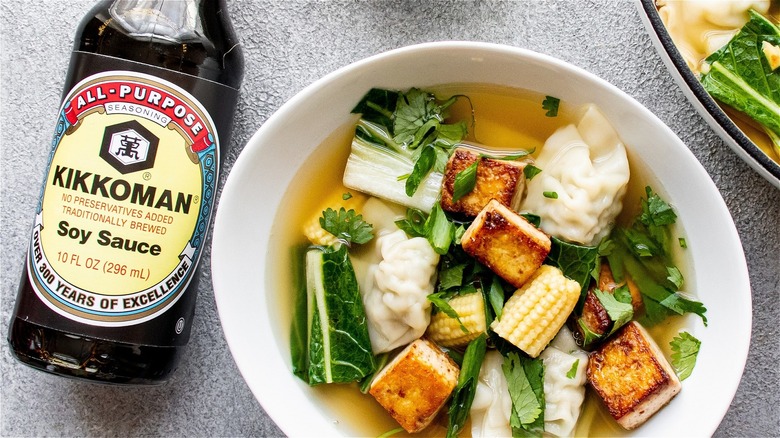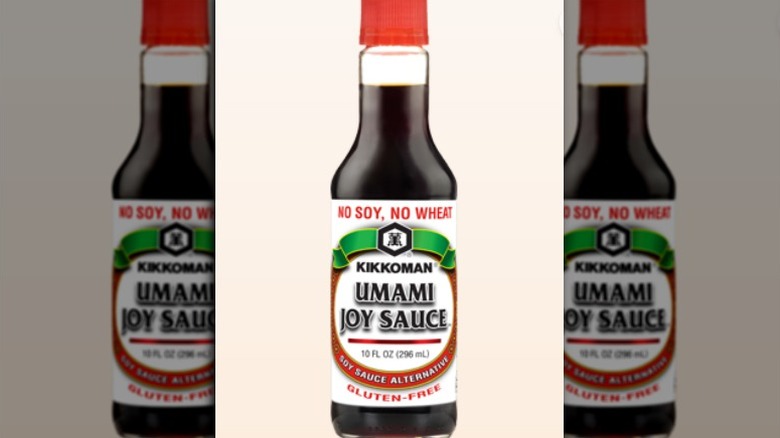Kikkoman Is Sending 2 Fans To Tokyo To Celebrate 50 Years In The US
Kikkoman has been brewing its Japanese soy sauce since the mid-19th century, but it wasn't until June 1973 that it began doing so here in the U.S. at its flagship Walworth, Wisconsin plant. Now, to celebrate its first 50 years in the U.S., Kikkoman is running a promotion called "Kikkoman Love Unbottled," which includes sending an adoring fan and their plus-one to Japan by air for a six-night hotel stay in Tokyo.
Fans can prove their "Kikkoman love" by submitting a photo or video showing how they use Kikkoman soy sauce or how they're celebrating the company's 50th anniversary, along with a brief caption. All submissions must be uploaded on or before May 30 – one entry per person. Starting May 30, Kikkoman's panel of judges will review the submissions based on creativity, authenticity, and brand affinity. Five finalists will be announced on June 15, at which point members of the public will get to place one vote per day for their favorite until June 22. The entry with the most votes will win the trip to Japan, which is valued at $15,000. The other finalists will be eligible to receive a check for $1,000.
Every vote counts as an entry into a random drawing, and 45 lucky voters will be awarded a gift pack of Kikkoman-branded items worth about $80. In addition, Kikkoman also has a couple of other celebratory gestures up its sleeve.
Kikkoman celebrates 50 years in the US with joy
As part of its celebration, Kikkoman is also releasing a limited edition 50th anniversary commemorative bottle, according to a press release sent to Tasting Table. Further, the company is continuing its worldwide launch of a brand new soy sauce alternative, Kikkoman Umami Joy Sauce. There's no soy in the name because there's none in the sauce. Made from just three ingredients, namely, fermented tomato extract, salt, and water, it's also a soy-free alternative to tamari sauce, which contains soy, albeit no wheat or gluten. Like tamari sauce, Umami Joy is also wheat- and gluten-free. In addition, it's free of GMOs, high-fructose corn syrup, and preservatives.
If you're wondering how exactly a tomato-based sauce can deliver the one-two umami punch that comes from fermenting soy with wheat, what you may not know is that tomatoes deliver quite the umami hit, themselves. In fact, tomato paste is one of the best soy sauce alternatives we know. Moreover, the early precursor to soy sauce wasn't made from soy or wheat, but rather, from fermented fruits, vegetables, or seaweed. Back then, it was known as "jiang," which was introduced to Japan from China between A.D. 250 and A.D. 710. Accordingly, this latest iteration can be said to celebrate Kikkoman's big milestone by harking back to soy sauce's roots.

